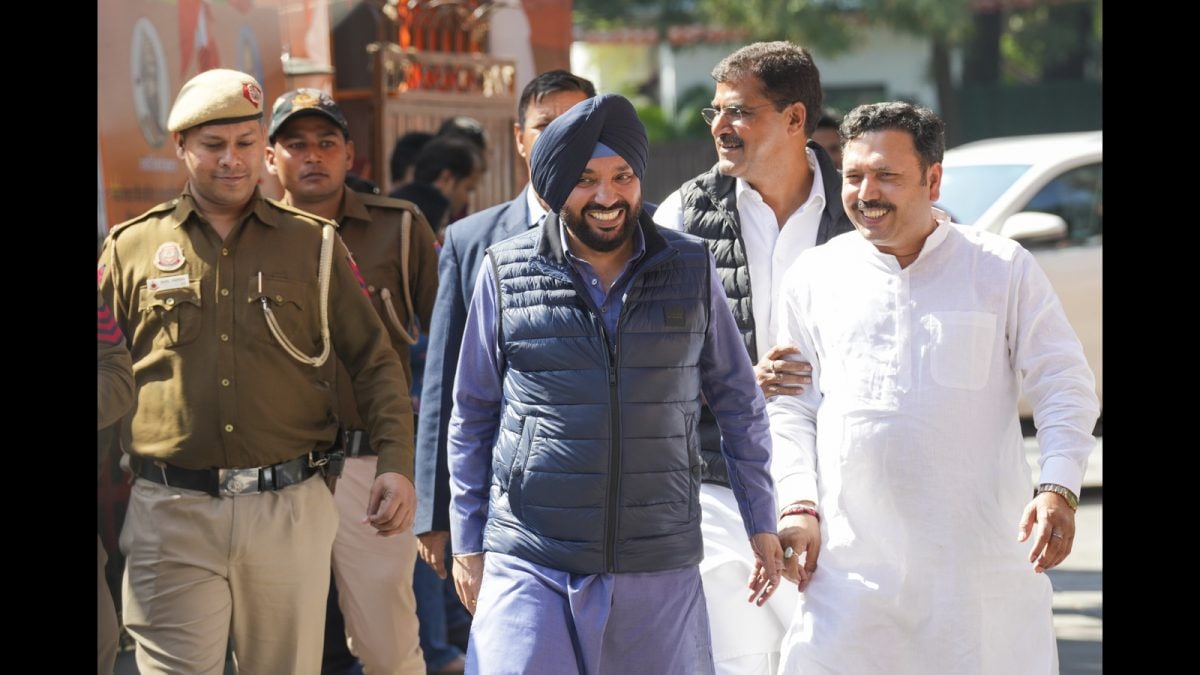 |
|
The article centers around BJP MLA Arvinder Singh Lovely's accusations against the Aam Aadmi Party (AAP) regarding the delayed tabling of Comptroller and Auditor General (CAG) reports. Lovely contends that AAP, while professing adherence to BR Ambedkar's principles, has violated the Constitution by allegedly holding back CAG reports for over a decade. This delay, according to Lovely, was deliberate, stemming from AAP's awareness of the potential exposure of their alleged wrongdoings. He underscores the mandatory nature of tabling CAG reports, asserting it as a constitutional provision established by Ambedkar himself, thereby accusing AAP of undermining the very foundation of their governance. Lovely's assertions tie the formation of AAP to the anti-corruption Anna Andolan, which heavily relied on CAG reports, highlighting the irony of AAP's subsequent alleged obstruction of these reports. He further criticizes the Public Accounts Committee (PAC), responsible for auditing government revenue and expenditure, for failing to ensure the timely implementation of CAG reports, implying potential complicity or negligence in safeguarding public funds. The tabling of the CAG report on the Delhi liquor policy, which allegedly resulted in a substantial revenue loss, serves as the immediate catalyst for Lovely's accusations. He indicates that this is merely the first of several volumes expected from the CAG, suggesting more potential revelations to come. Lovely’s statements paint a picture of AAP hypocrisy, accusing them of sacrificing constitutional principles for political expediency. The core of his argument rests on the constitutional mandate for transparency and accountability through the CAG, which he claims AAP has disregarded. He seeks to hold both AAP and the PAC accountable for the alleged delay and the potential financial irregularities it masks. The timing of the accusations, coinciding with the tabling of the liquor policy report, suggests a deliberate strategy to capitalize on the controversy and damage AAP's reputation. The article also points towards a broader political conflict between BJP and AAP, with each party leveraging accusations of corruption and constitutional violations to gain an upper hand. Lovely's narrative attempts to portray AAP as a party that has abandoned its initial principles of transparency and accountability, thereby undermining their legitimacy in the eyes of the public. He effectively leverages the legacy of BR Ambedkar to frame AAP's actions as a direct assault on the constitutional safeguards established to prevent corruption and ensure good governance. Moreover, the focus on the PAC raises questions about the oversight mechanisms within the Delhi assembly and their effectiveness in holding the government accountable. The accusations leveled by Lovely have the potential to trigger further investigations and scrutiny of AAP's financial practices, potentially leading to legal or political consequences. The article, therefore, sets the stage for a protracted political battle centered on issues of corruption, transparency, and constitutional adherence, with significant implications for the future of AAP's governance in Delhi. The accusations made by Lovely are not merely about procedural delays; they are a fundamental challenge to AAP's integrity and their commitment to the principles they initially espoused. He is essentially accusing AAP of betraying the very ideals upon which they built their political platform. The focus on the CAG and the PAC underscores the importance of independent oversight mechanisms in a democratic system and the potential for these mechanisms to be undermined by political interference or negligence. The article implicitly raises questions about the independence and effectiveness of these institutions in Delhi and the extent to which they are able to hold the government accountable. The alleged delay in tabling the CAG reports suggests a deliberate attempt to shield the government from scrutiny and to prevent the public from learning about potential financial irregularities. This is particularly concerning given AAP's origins in an anti-corruption movement and their promises to usher in a new era of transparency and accountability. The fact that the CAG report on the Delhi liquor policy has now been tabled, revealing significant revenue losses, adds weight to Lovely's accusations and increases the pressure on AAP to provide a credible explanation for the alleged irregularities. The political context of these accusations is also important to consider. The BJP and AAP are rivals in Delhi politics, and the accusations made by Lovely are likely intended to weaken AAP's position and to bolster the BJP's chances of success in future elections. The article, therefore, reflects a broader pattern of political conflict and competition in Delhi, with each party using accusations of corruption and mismanagement to gain an advantage. The article serves as a reminder of the importance of vigilance and scrutiny in holding governments accountable and ensuring that they adhere to the principles of transparency and good governance. The accusations made by Lovely highlight the potential for even well-intentioned political movements to become susceptible to corruption and to compromise their own principles. The article also underscores the importance of independent institutions, such as the CAG and the PAC, in safeguarding public funds and ensuring that governments are held accountable for their actions. The ongoing investigation into the Delhi liquor policy and the broader scrutiny of AAP's financial practices will be crucial in determining the extent to which the accusations made by Lovely are justified and in ensuring that any wrongdoing is brought to light. Ultimately, the article raises fundamental questions about the integrity of AAP's governance and their commitment to the principles of transparency and accountability. The answers to these questions will have significant implications for the future of Delhi politics and for the broader fight against corruption in India.
Source: Ambedkar Made CAG Mandatory, BJP's Lovely Reminds AAP, Trains Guns On PAC Chairman
